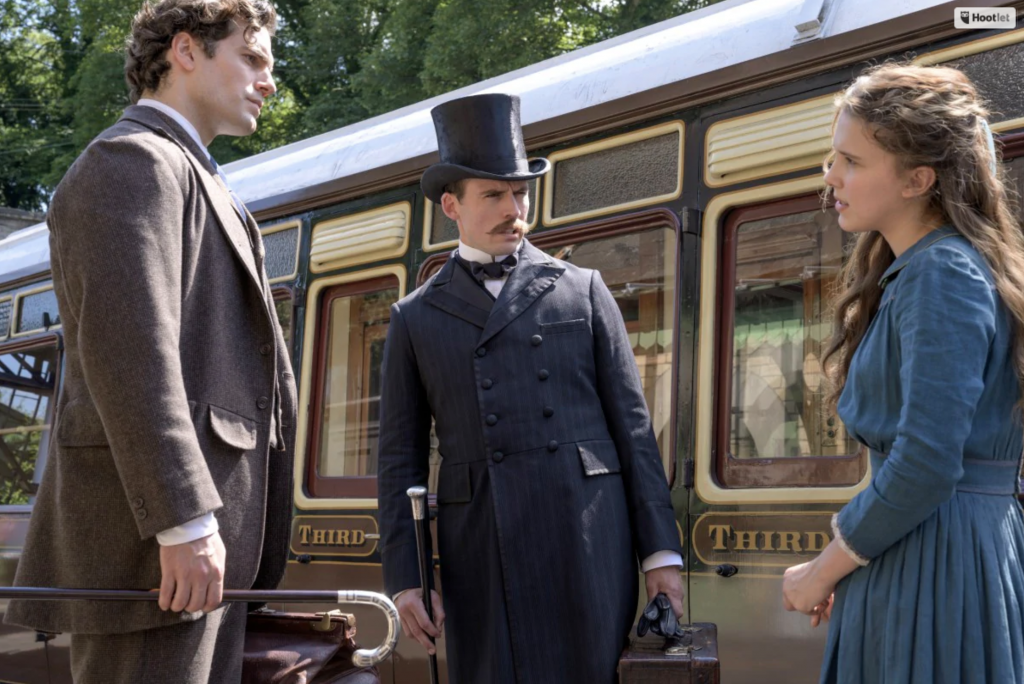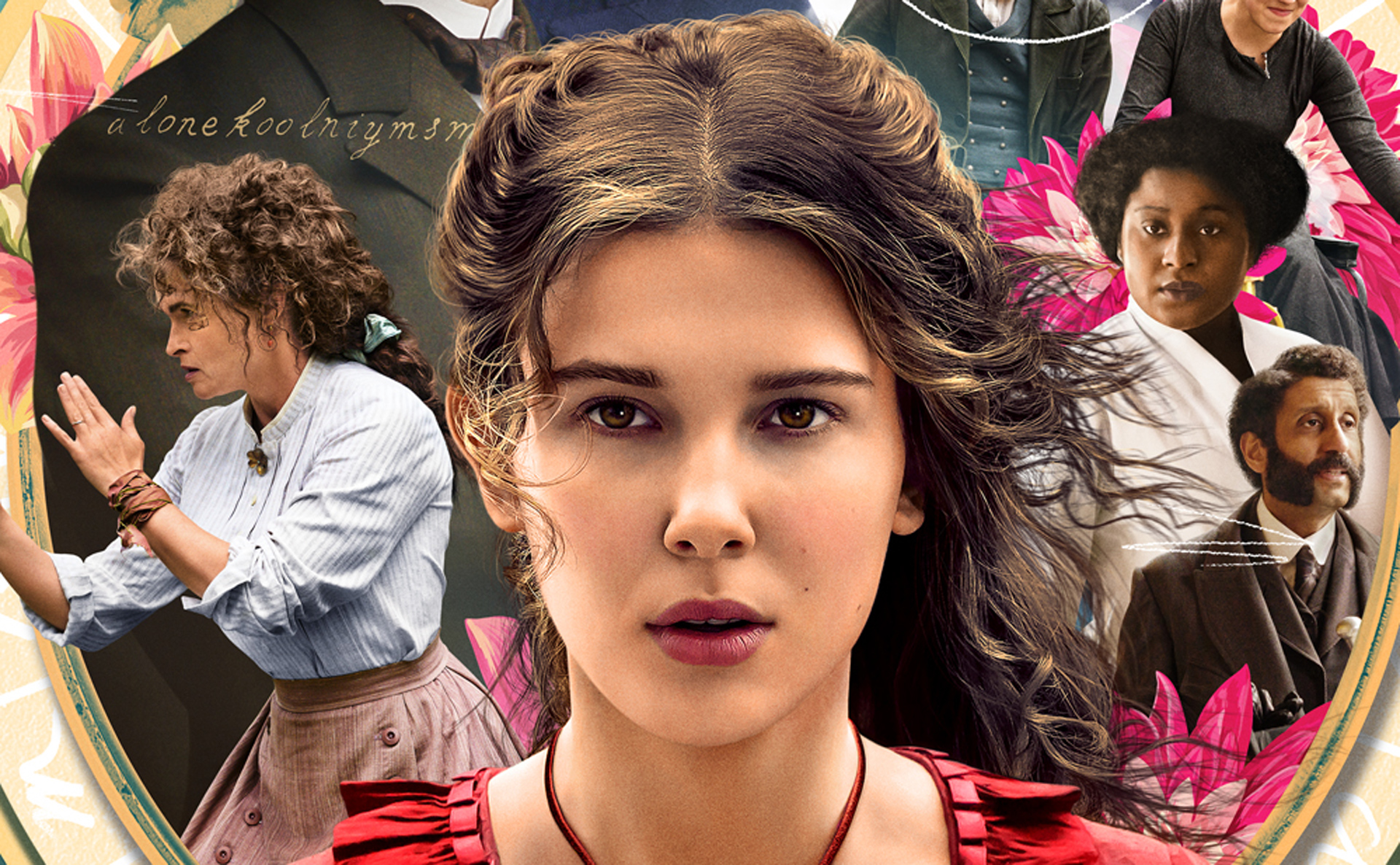Enola Holmes isn’t out to reinvent cinema. Set against a backdrop of Victorian patriarchy, it often raises questions about women’s changing role in society, especially as key characters are involved in the suffragette movement. However, the film isn’t nearly as serious as its underlying themes would suggest. It’s a family-friendly young adult story centered squarely around Millie Bobbie Brown’s Enola Holmes. The film succeeds mostly because of her quick-witted, feisty portrayal, as well as an able hand in director Harry Bradbeer and solid performances from Henry Cavil and Sam Claflin, who portray Sherlock and Mycroft Holmes respectively.
Raised in a very unconventional manner by her mother Eudoria, Enola couldn’t be more different from the prim and proper women of her age and status. When her mother goes missing on her sixteenth birthday, however, she is left to contend with her returning brothers. Sherlock is amused by her lack of propriety, while Mycroft is appalled. He decides to enroll her in a finishing school for ladies. Before he can send her off, however, Enola escapes to London. You see, she has come upon some money and notes left behind by her mother, and is confident she can find her. Of course, along the way, she stumbles into Lord Viscount Tewksbury (Louis Partridge), another teenager also on the run from his family. Except, it turns out, there’s an assassin on his tail.
Millie Bobbie Brown’s spirited portrayal as the socially oblivious Enola is reminiscent of other fiery women in Victorian environments, such as Kiera Knightley’s Lizzie Bennet in Pride and Prejudice. There is a good mix of maturity, cleverness and awkwardness at play, She rarely comes off as annoying, which is hard to do when she’s talking to the audience through constant fourth wall breaks. One might have expected Enola Holmes to be as good a detective as her famous brother.
While Enola is definitely clever, she isn’t some kind of Mary Sue-ish super detective.
Rather, she constantly fumbles and stumbles into danger, which she gets out of using her wit and jiu-jitsu skills.

Of the supporting cast, Mycroft is reimagined as a man limited by his time, insisting that Enola learn to behave like a lady and trying to make decisions for her. Sherlock is less rude, but he has a detached sensibility to things that initially offends Enola. Later, he displays concern and empathy for her, visiting her and giving her words of encouragement. Henry Cavill makes for a decent Sherlock, although his bulging physique is a far-cry from other iterations of the character. Helena Bonham Carter is suitably eccentric and inspired as Eudoria, but we rarely get to see the intricacies of her character, and she barely shares on full screen with Enola.
As bracing and fun Enola Holmes is, it’s not without its flaws.
There are brief moments where there is a sense of genuine danger, but most of the time Enola breezes through her obstacle. This may be due to the Young Adult nature of the story, but it does feel as though everything comes together very conveniently. This isn’t your typical Sherlock story- most of the sleuthing is done on the fly, and often, off-screen. In a way, the film is better for it, as it gets to tell its own story without being overshadowed by Sherlock.
Given that the source material, Nancy Springer’s Enola Holmes novels, is six books long, there’s plenty of content there to continue the franchise for a long time. This could be a great vehicle for both Netflix and Millie Bobbie Brown, making it one of the cornerstones for their future content strategy. Let’s hope we get to see more of Cavill’s Sherlock, especially if he and Enola get to solve cases together.







